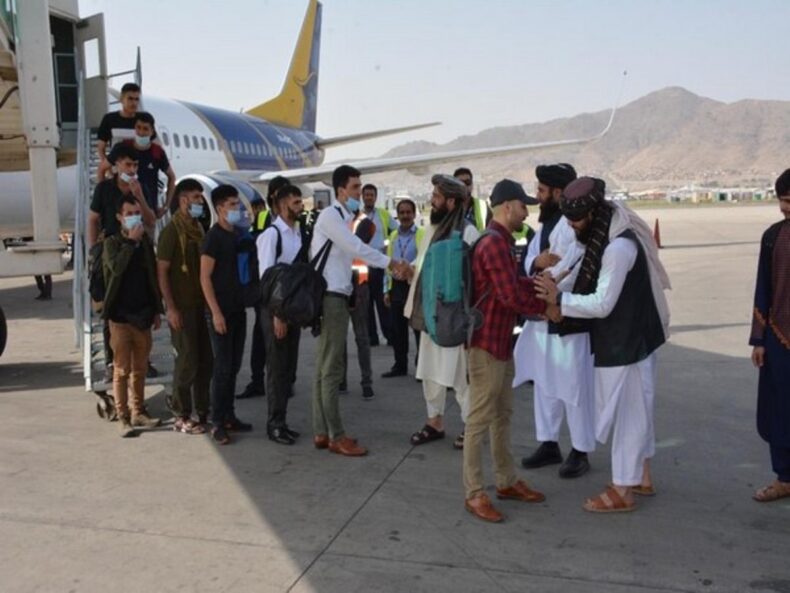The Kabul government on Friday threw out the red carpet for a group of Afghan Military cadets who returned to Kabul after completing their training in India, giving an indication that the Taliban are warming up to India. See here.

Approximately two dozen Afghan military cadets returned to Kabul after graduating from the Indian Military Academy (IMA) in Dehradun. They had cleared their training back on June 11.
“The MoD, Afghanistan, encouraged by our humanitarian aid and placement of our technical team in Indian Embassy, Kabul, had requested EoI Kabul through an official letter on 25.06.22 requesting direct communication with the Afghan cadets trained in IMA/ NDA, India. Govt agencies including MEA facilitated talks between MoD Afghanistan and Afghan cadets and they finally returned after assurances of safety and employment from the Afghan Minister of Defense on 28.07.22,” Taliban led Defense Ministry said in a statement on the return of Afghan cadets.
It is important to note that, prior to the Taliban taking power in Afghanistan, all these 25 Afghan military academy students were sent to India, where they were assigned to train in combat.
The Taliban government’s enthusiastic reception of Afghan cadets with Indian training is a sign of Kabul’s strengthening ties to New Delhi.
According to sources, the Afghan government, which is primarily dominated by the Taliban, is eager to employ these cadets’ skills to uphold national security.
Since the Taliban took control of Afghanistan last year, the Afghan National Army has ceased to exist, putting an end to any future prospects for Afghan cadets to get this type of training.
However, given the warm welcome, the cadets received upon arriving in Kabul, expectations for future Afghan cadets traveling to India for training are high.
No new cadets arrived at IMA for training following the shift in the country’s regime.
The Indian defense ministry had earlier in February made arrangements for close to 80 Afghan cadets from various Indian military training schools to stay for an extended period of time amid reports of the Taliban imprisoning and killing Afghan security officials.
Additionally, as part of the Indian Technical and Economic Cooperation Programme, India gave them access to a 12-month English training program.
That followed the Afghan cadets’ refusal to return home as well. Some people applied for refuge in the US, India, and other western countries.
A similar understanding of the economic, social, and cultural periphery underlies the unique and dynamic relationship between Afghanistan and India.
The Indus Valley Civilization is where the ties between the peoples of Afghanistan and India first began.
The mark of their long-standing bilateral links may be seen in both countries’ revered Buddhist symbols, such as those in Aynak and Bamyan in Afghanistan; the towering monuments in Delhi; and the Indian cultures, arts, languages, literature, meals, and festivals.
In the past, India has supported and promoted the cause of Afghanistan’s democratically elected government. India has contended that because the Taliban did not represent the will of the Afghan people, they were not selected and lacked locus standi.
In addition to helping rural populations receive schools, minor irrigation systems, health clinics, welfare for children, and chances for women, India has continued to strengthen Afghan capacity for governance, security, and development.
In India’s outreach to the Central Asian Republics (CAR), Afghanistan plays a critical geostrategic role.
Since 2001, Afghanistan has served as the front line in a proxy war between India and Pakistan. India needs Afghanistan to better understand Pakistan; hence, it is important for India to foster good relations with Afghanistan.
In addition to its security and economic objectives, Afghanistan serves India’s goals of being a regional leader and a great power, as well as its rivalry with China for resources.
India has been advocating for any peace process to be Afghan-led, Afghan-owned, and Afghan-controlled.












